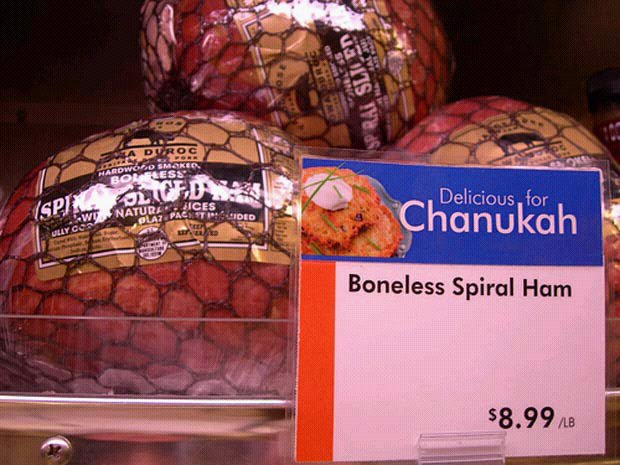The word kosher, alone, doesn’t mean too much. It needs to be qualified. It is not an absolute unless each and every authority agrees. That is rare. Even with something as mundane as water, we know that because of micro-organisms (copepods) in various countries, some authorities recommend filtration. If your Posek recommends that you filter, then it may also be that your Rabbi considers unfiltered water not kosher. On the other hand, your Posek may consider it Kosher B’Shaas HaDchak or B’Dieved. It depends on the issue at hand and its halachic severity in the eyes of your Posek.
There are a myriad of so-called Kosher Certifications. Does that make them all Kosher? That’s a loaded question; it’s in the eyes of the particular consumer and their Posek. For one Posek a particular certification is not recommended, and how you translate not recommended in general, may mean it’s simply not Kosher any time under any circumstance. Triangle K and Rav Abadi’s Kashrus rulings are but one example of certification that is not relied upon by other agencies and communities. It is relied upon by others. They aren’t on the Kosher Australia list, and are not on many lists around the world. If your Posek says that you may not rely on it, then for you, it is not Kosher. It is not fit. Kosher means fit for halachic consumption; your halachic consumption. If you rely on an agency, such as Kosher Australia, then it’s the same deal. If they do not recommend it, it is not fit for your kosher consumption. However, saying that someone else whose Posek or Kashrus Agency does allow, Triangle K for example, is eating non kosher, is none of your business.
If I don’t use the Melbourne Eruv because my Posek advises me not to, I am not going to say that Jews who do rely on it, based on their Posek or Agency, are carrying on Shabbos!
In context then, there was a harmless post on the Kosher Australia Facebook page where a subscriber to Kosher Australia, who follows Kosher Australia asked on the Kosher Australia Facebook page whether the “It’s Kosher” supervision is Kosher. In context, that clearly is asking whether food under the auspices of “It’s Kosher” is permitted to be eaten. The answer is of course No! The reason, as provided by Yankel Wajsbort of Kosher Australia is that it is not recommended. There are no surprises here, and I was flabbergasted to learn that one of those heavily associated with “It’s Kosher” took great umbrage at the question. It is perfectly valid to ask if something is Kosher to a Kosher Agency. That’s how questions are asked. Nobody asked “if I am served something from “It’s Kosher” at someone’s house, am I permitted to eat it, or should I find a reason to make a quick exit. That’s a different question. Kosher is Lechatchila; in the first instance. In the first instance, if you are served, for example, Soft Matza from “It’s Kosher” can you eat it according to Kosher Australia. The answer is no. The folks from “It’s Kosher” are a bit too sensitive from what I can detect. You can’t stymie valid questions and answers and most importantly, attempting to stymie such discussion is definitely not going to ingratiate “It’s Kosher” in the eyes of the Kosher consumer.
“It’s Kosher” and its network of consumers ought just follow their Rabbi (Meir Rabi), and leave others to follow Kosher Australia and/or their own Posek. Threats are silly in the context.


a new Hechsher:
http://www.bhol.co.il/Article.aspx?id=39455
what’s next?
LikeLike
WHy are there pictures of Rav Shacheter on the its kosher website
LikeLike
Marketing. It is designed to make you feel more confident about the Hashgacha. I’m not sure I’ve seen any other agency engage in such.
LikeLike
ladies stockings with a satmar hechsher
http://www.jewishideasdaily.com/content/module/2011/2/17/main-feature/1/the-riddle-of-the-satmar
“The rebbe taught that even 70-denier stockings should not be worn. The numerical value of sod (secret) is 70, so the secret is out that this [stocking] is also transparent.” There then follows a lengthy account of Teitelbaum’s creation, with the help of a Brooklyn businessman named Lipa Brach, of an exclusive line of fully opaque women’s hosiery:
Money in hand, Reb Lipa Brach began to work on the project. He went to several hosiery manufacturers, collected samples, and brought all of them to the rebbe to inspect. The rebbe was very pleased with the progress, and he tested each sample by pulling it over his own arm. If his hair showed, it was no good…. The new stockings were given the brand name, “Palm,” the English translation of the Rebbe’s surname…. To this day every Satmar woman and girl wears Palm stockings”.
LikeLike